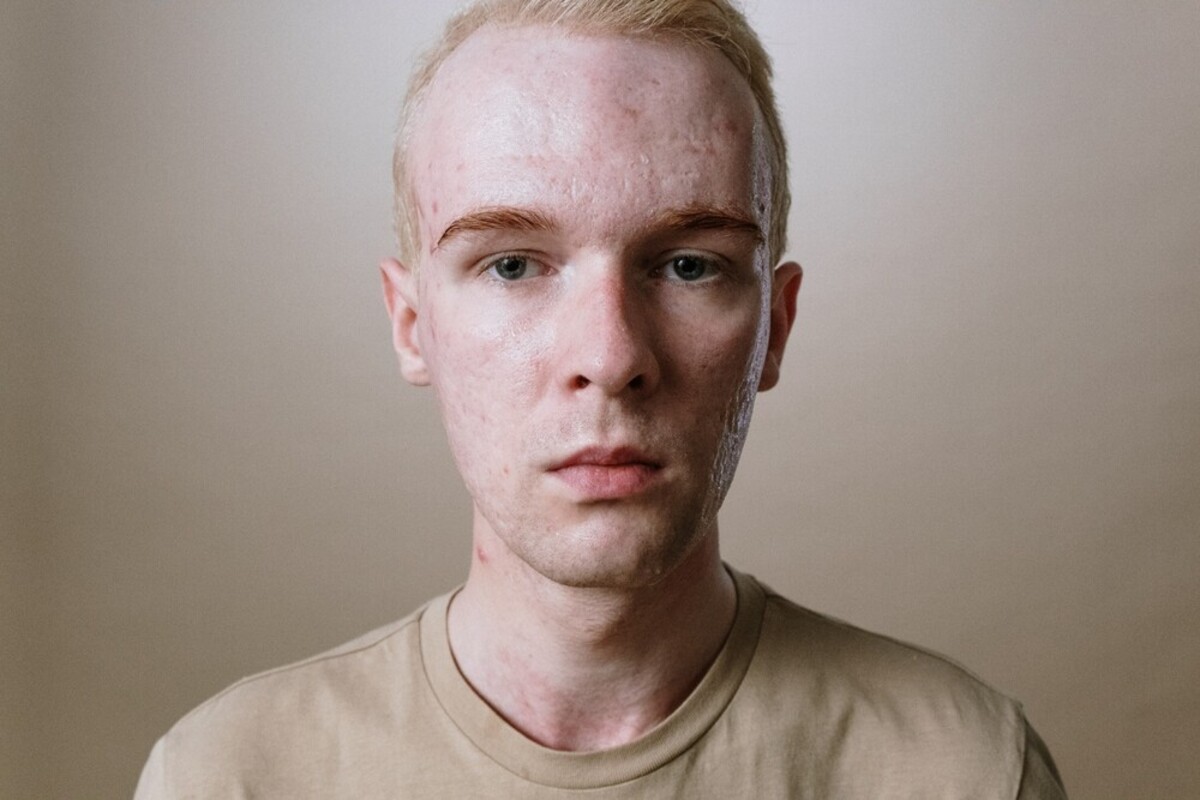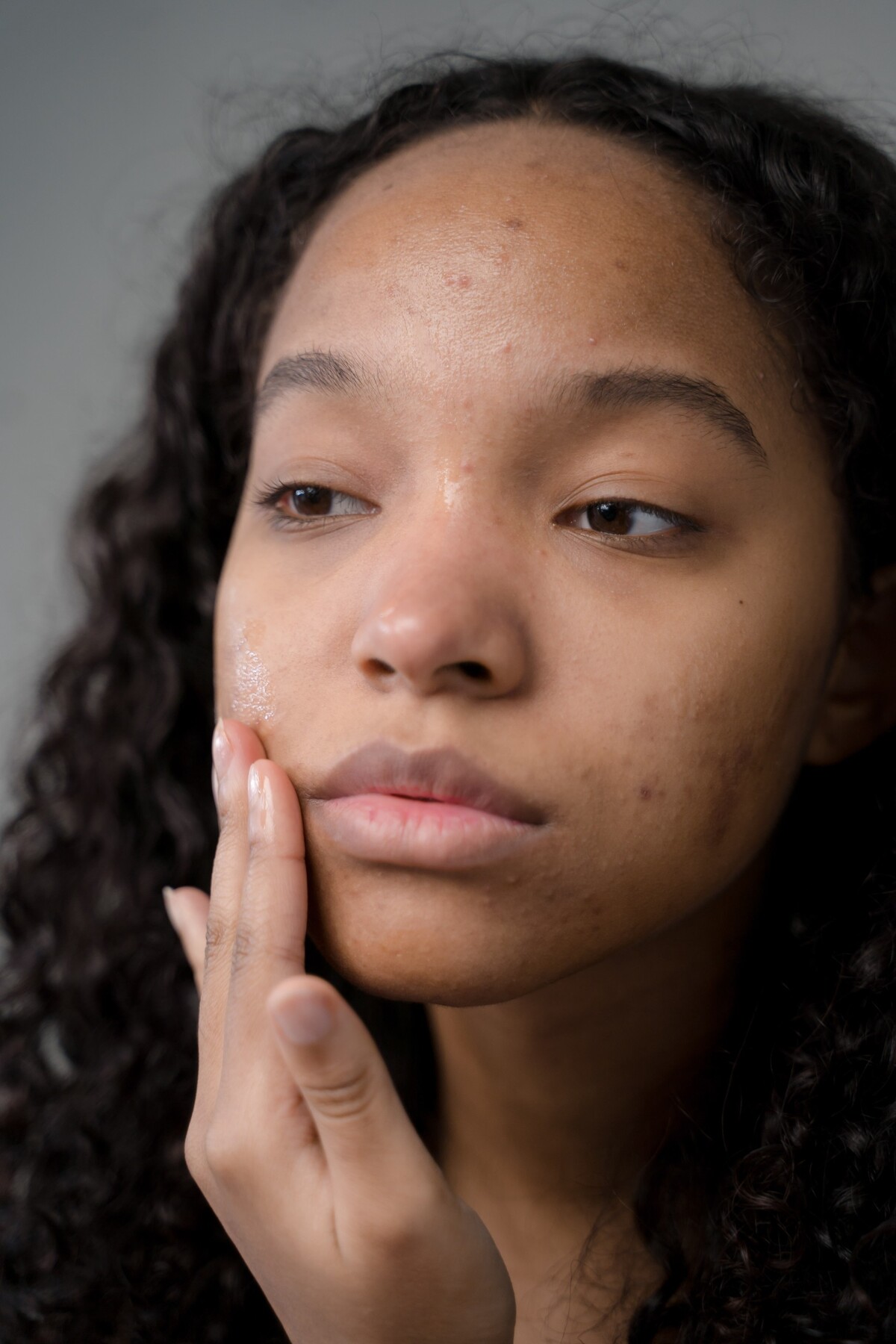Genetics affects the development of acne up to 80%.
Your genetics are partly to blame for acne. According to several professional studies, genetics affects the development of acne up to 80%.
Acne isn't caused just by genetics
Like many other diseases, acne is also polygenic, which means that the disease is not only related to a change in one gene, its development is influenced by several areas in the DNA. In addition to genetic predisposition, acne is also influenced by other factors, such as the environment or behavior.

If your genetic test tells that you also carry a predisposition for acne in your DNA, it does not mean that you will really encounter these painful rashes.
"The tests do not confirm or exclude the diagnosis. They only show a genetic susceptibility to the development of diseases, such as acne. So if a person comes out with a standard risk in the test, it does not mean that they will not encounter acne during their life, and if someone comes out with a higher risk, it does not mean that they will be guaranteed to have acne," says the geneticist, adding that genetic tests are only about probability.
 4 Mistakes That Harm Acne-Prone Skin. Do You Know How To Take Care Of Your Skin?
1. 10. 2022 19:00
4 Mistakes That Harm Acne-Prone Skin. Do You Know How To Take Care Of Your Skin?
1. 10. 2022 19:00
Knowing about your genetic predisposition can help you make better decisions regarding your health.
It could be hormones or something else
Acne is most often associated with puberty, because during puberty, hormonal changes occur in the body that contribute to its appearance, dermato-venerologist and primary care physician at NU CLINIC MUDr. Jana Chudíková explains for Refresher. "It is related to the activity of the gonads and the release of androgen sex hormones. Girls can have basic non-inflammatory acne as much as a year before menstruation."
Androgens stimulate the sebaceous glands, especially in the so-called T-zone (on the chin, around the nose and on the forehead), but also on the chest or back, the doctor further explained. Increased production of sebum is accompanied by excessive keratinization of skin cells, which causes the gland to become clogged. It gradually becomes filled with sebum, dead skin cells and bacteria. They feed on the fats contained in the sebaceous gland and secrete pro-inflammatory substances.
"These substances activate the immune system, which sends T-lymphocyte immune cells to the site," describes MUDr. Chudíková. "That's why inflammation develops on the spot." The doctor emphasizes that it is important to start treating acne as soon as possible and start regular deep cleansing of the skin so that a simple comedone without inflammation does not turn into a painful inflamed rash. It is not only a question of aesthetics, whether someone likes black dots or not, it is also a form of prevention of the spread of the disease.

The course and development of acne is not only related to hormones. According to the doctor, it can be aggravated by, for example, inappropriate skin care or bad eating habits. "Recent studies have shown that foods with a high glycemic index make acne worse because insulin-like growth factor is activated, which promotes increased sebum production."
Acne is also aggravated by stress or lack of vitamin D and zinc, if you have a low level of these vitamins, you need to supplement them.
– at the skin clinic (prescription medicinal preparations),
– at a beauty salon or in a medical cosmetics clinic (deep cleaning, additional care, special treatments, for example with a laser),
– at home (anti-acne cosmetics).
Depending on the extent of the acne and whether it is an inflamed rash, the dermatologist will prescribe either prescription solutions or creams, i.e. local medications or antibiotic treatment (local or general). In severe forms of acne, pills with isotretinoin are prescribed.
If I have acne once, will it stay forever?
We don't have to have acne all our lives, says dermatologist Jana Chudíková. "How long acne will bother me is very individual. It depends not only on genetics, but also on proper care and treatment. It mostly only affects young people during puberty."
The doctor says that in her practice she comes across acne in adults, especially if they didn't deal with rashes that much during puberty. They did not undergo examination and comprehensive treatment, did not visit a dermatologist and relied on randomly purchased cosmetics.
Several scientific publications show that acne also persistently troubles adults, it is not just a pubertal problem. According to Yale University, up to half of women in their twenties still have acne, and this skin disease accompanies approximately 25% of them until their forties (acne also affects approximately 12% of men at this age). So, if you are long past puberty, but the rashes have not gone away, you are not alone.
According to the American Dermatology Association, adult acne is closely related to external factors: people face stress and many use inappropriately chosen cosmetics that worsen the skin condition. Fortunately, there are affordable and effective treatment methods. However, you need to visit a skin clinic for that.
In the event that the acne does not disappear even after treatment, MUDr. Chudíková says that it is appropriate to take other factors into account. Next come examinations of the thyroid gland, sex hormones or the digestive tract, which may have inflammation. It is also advisable to rule out food allergies and intolerances.
What to do to prevent acne from returning
MUDr. Chudíková points out that acne requires complex care. This means regular consultations with a dermatologist, compliance with the prescribed treatment and regular deep cleansing of the skin.
It goes without saying that you have a cosmetic routine that you can follow regularly and that also helps your skin. It is non-comedogenic (does not clog pores), is suitable for your skin type (dry, oily, sensitive, etc.). It is important to regularly clean, hydrate and protect the skin from the sun.
You don't have to worry about a lot of products either, the dermatologist says that even acne-prone skin can use tonics or serums (or prescription creams), moisturizing creams, and masks or eye creams, depending on need and interest, in addition to makeup remover and cleansing gel. They can help you choose products directly in the clinic or in the beauty salon. It is important to be consistent in your routine: the best way to keep acne under control is good long-term care.







